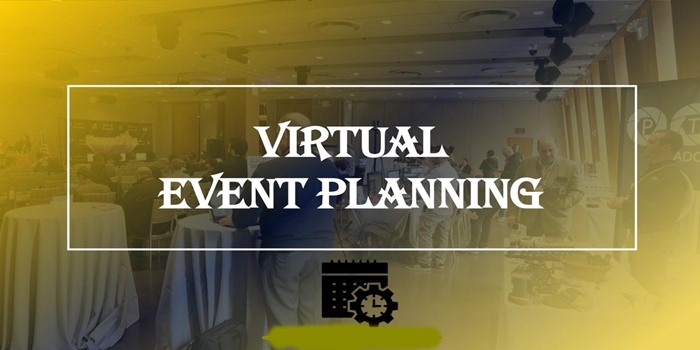In this article, we discussed the meaning of virtual event planning, promotion we also talked about the tips for virtual event and the steps.
Definition
Virtual event planning is the process of organizing online events, such as webinars, conferences, trade shows, and networking events. Virtual event promotion is the marketing of these events to increase awareness and attendance.
Event promotion can also refer to marketing a product launch. The goal of event promotion can vary depending on the event, but it can include promoting ticket sales, gathering attendees, or getting sponsorship or donations.
Event promotion is the process of marketing your event or product launch. The event organizer or a third party typically promote the event. It’s a marketing strategy with a clear goal which can vary depending on the event. You could promote ticket sales.
Here are some tips for planning a virtual event:
Define your audience
Identify who your target audience is and what they want to gain from attending.
Choose a date and time
Consider the time zones of your audience, especially if you have an international crowd.
Plan the content
Create a detailed agenda with sessions like keynotes, panel discussions, and Q&A sessions.
Select speakers
Aim to have a mix of industry experts and engaging personalities.
Promote the event
Use social media, email campaigns, and partnerships with sponsors to build anticipation.
Use an event management platform
Platforms like Eventbrite, Whova, Cvent, and Fairs offer tools for planning, managing, and promoting events.
Planning and promoting a virtual event involve several steps, including:
Defining goals:
Set clear objectives for the event, such as increasing brand visibility or converting attendees into customers
Identifying the audience:
Consider what the audience wants to gain from attending and take into account time zones
Choosing a date and time:
Select a date and time that works best for the audience
Creating an agenda:
Develop a detailed agenda that includes sessions like keynotes, panel discussions, and Q&A sessions
Selecting speakers:
Choose a mix of industry experts and engaging personalities
Promoting the event:
Use various channels to promote the event, such as social media, email campaigns, and partnerships with sponsors
Designing a brand: Create a virtual event brand
Developing a marketing strategy:
Create a marketing strategy for the event
Pre-scheduling communications:
Pre-schedule communications ahead of time
Conclusion
Virtual events are online gatherings that allow participants to interact in a digital environment. They can include a combination of live and pre-recorded segments, and may include interactive elements like polls, Q&A sessions, and networking opportunities.. Virtual events can be a flexible and interactive way to reach a wide audience. They can range from small webinars and workshops to large-scale conferences and expos.

